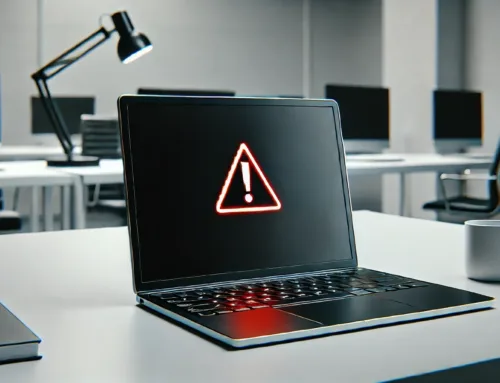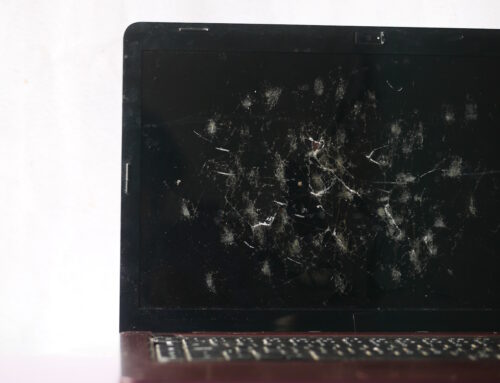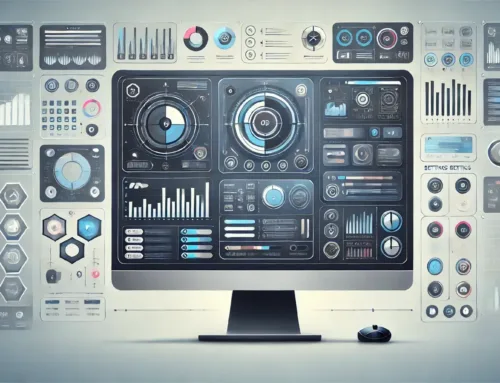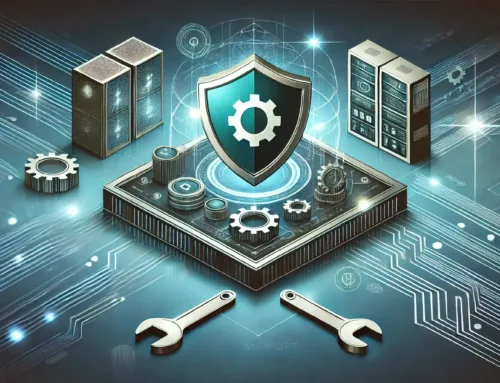What to Look for When Buying a Laptop
Laptops are the perfect solution to working on the go. With hybrid working being so popular, they are an excellent choice for businesses who need their staff to be able to take their computers home.
Thanks to modern technology, there is no need to compromise on power, and their versatility makes them ideal for many situations.
With so many options, it can be hard to make a good choice. This guide will examine the main questions to consider when buying a laptop for your business.
What operating system is the best choice for a laptop?
Most laptops feature one of three operating systems: Windows, Chrome OS or macOS. Many people have a personal favourite or brand loyalty, but if not, here are the main differences between these platforms.
Windows
Most laptops operate with Windows, so you will find more choices using this platform.
The latest version, Windows 11, has easy-to-use tools to help you optimise your screen space and maximise productivity.
It has a clean, fresh look with the ability to download Android apps and allows you to access Microsoft Teams from the taskbar.
Windows offers plenty of support, making it a good choice for businesses, particularly as most business software will be compatible with this platform.
Apple macOS
All types of MacBooks come with the latest macOS. Although it functions similarly to Windows, the interface has some significant differences and can appear sleeker.
One advantage of the Apple Macs is that they are compatible with other Apple devices, so if you want to sync your iPhones and watches to your laptop, it makes sense to stick with Apple.
Compatibility with software has grown, although it can be clunkier than on a dedicated Windows laptop. There have been improvements to the Safari browser, and some people feel that security is better on macOS as it is less targeted by viruses.
Chrome OS
The Chrome OS looks a lot like Windows but has some limitations. The main app you will use is the Chrome browser, but you can utilise an app menu and drag it around windows.
It is best suited to users who are happy to work online and will benefit from increased battery life and portability.
Do you need extra versatility?
You can choose between a standard laptop or a hybrid device that can convert into a tablet. Both types can include a touchscreen.
Hybrid laptops have either a detachable screen or can hinge into tablet mode.
Remember that you will pay more for a touchscreen or hybrid set-up and may lose out on some performance. If you don’t need this kind of versatility, it is best to stick with a traditional-style clamshell laptop.
What is the best size laptop?
Choosing the right laptop size is a balance between performance and portability.
Laptops are measured by screen size and are available between 11 inches and 18 inches with a weight range of 1kg to 2.5kg.
The smallest laptops have a minimum screen, and you will be compromising on performance and usability. You will get more performance and processing power at the larger end, but it will not be ideal for carrying around.
Fourteen inches is a good balance of size, weight and usability.
What specs should I look for in a laptop?
Once you have chosen your platform and size, your major decisions will be about the individual specifications. If you aren’t an expert, it can be confusing and hard to make an accurate comparison.
Let’s look at the main specifications that should influence your choice.
What Processor?
The processor choice influences the performance and speed of your laptop. The better the processer, the more you will pay, so there is no need to go for more than you need.
Intel 11th Gen CPUs: Intel introduced 11th Gen Tiger Lake processors that will power the next generation of laptops. Tiger Lake is a 10-nanometer chip that delivers improved integrated Iris Xe graphics with up to 4.8Ghz speeds and Thunderbolt 4 support.
Intel Core i3 – i9: The i3 processors are at the weaker end of performance and are best suited to light use only.
The i5 is the perfect performing processor for mainstream use.
The i7 is faster and will cope with gaming and multiple processes, while the i9 provides faster performance than any other chip on the market.
Intel Xeon: These are expensive and best suited for professional set-ups such as engineering, 3D modelling or video editing.
Intel Pentium / Celeron: These are popular budget chips that give a relatively slow performance but are adequate for document editing and browsing.
AMD Ryzen 4000 and Ryzen 5000: These newer chips have been designed to compete with the Intel Core i5 and higher. They offer a cheaper option for those seeking increased performance processing.
AMD A, FX or E Series: Another budget option best suited to browsing and social media.
Apple M1: The MacBook Air and Pro now offer Apple’s silicon chips that provide excellent performance.
How much memory do I need in a laptop?
Your RAM dictates the short-term memory in your laptop and will affect the speed your computer can perform. Long-term storage of your files and data is kept on your hard drive or solid-state drive.
Although budget laptops come with only 4GB of RAM, it is better to look for ones with 8GB or even 16GB. More than that will cost you quite a bit extra and is helpful for those carrying out high power processes.
A Solid State Drive (SSD) will give you up to three times more speed than a hard drive. Newer NVME units are three times faster than SATA drives.
What kind of display is important in a laptop?
For a sharp, clear image, you need more pixels. At the budget end of laptops, you will find some displays with only 1366 x 768 displays.
It is preferable to choose 1920 x 1080, which will give you a full HD experience (1080p). Higher pixel displays can cost much more and best suit graphics-heavy processes as they will also drain the battery.
It is always worth reading individual reviews about the display on a laptop as the resolution is only part of the quality. Consider the colour rating and brightness of at least 300 nits.
Some brands have built-in blue light blocking to help protect users’ eyes.
Do I need a discrete graphics processor in a laptop?
When it comes to graphics, you have two main choices: an integrated graphics chip that works on your system’s memory or a discrete graphics processor.
For most users, an integrated graphics chip will be perfectly adequate. However, if your processes are graphics heavy such as photo and video editing software, you should consider a discrete processor such as Nvidia or AMD.
How many ports do I need?
The answer will depend on the kind of set-up you require in your business. So, if you plan to dock your laptop in the office and connect external displays, you must ensure you have enough ports.
Most laptops will come with USB 3 ports and an HDMI connector, but many now include USB Type C and Thunderbolt 3 or 4 ports. These provide faster connections and charging capabilities.
Also, consider ethernet ports and headphone ports depending on your requirements.
What connectivity is essential on a laptop?
You must consider Wi-Fi connectivity, 4G or 5G support and Bluetooth.
Wi-Fi is essential for most laptops, and Wi-Fi 6 offers a more stable connection. If you need maximum portability, look for laptops that can support 4G or 5G connections.
Bluetooth 5 will allow users to connect external mice or headphones.
What Keyboard or Touchpad do I need on a laptop?
Ergonomics are essential when choosing a laptop suitable for everyday work use. Test out how comfortable the keyboard is and the spacing of the keys.
You need your trackpad to be stable and easy to use, as if the laptop is to be used on the go, you will not connect an external mouse. Look out for precision touchpad drivers.
How essential is the battery life?
Unless you intend your device to be permanently docked in the office, battery life will make an enormous difference to the useability of a laptop.
It would be best to look for a laptop that provides at least seven hours of use on a charge, but it is best to read reviews rather than accept manufacturers’ claims.
If you are interested in upgrading your office laptops, please get in touch with us today at Techfident. We have a wide selection of new and refurbished options, including all the best brands, and we are happy to advise on what will work best for you.




